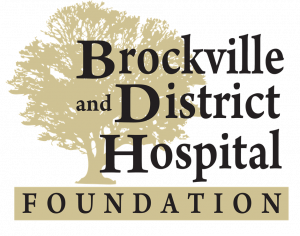Depression and Stigma

Depression and Stigma: How Negative Stereotypes Cause Harm
Depression is a complex mood disorder that affects one in eight Canadians at some point in their lives. Depression is a serious illness that takes a heavy toll on a person’s mental and physical well-being. Public awareness has improved in recent years, but the stigma (negative stereotypes) associated with depression and other mental health conditions persists. Too often, stigma discourages people from seeking help. We can all play a part in reducing stigma and supporting mental health.
What is depression?
We all experience sadness, grief or “the blues” from time to time. They’re part of being human. Depression – also called major depression or clinical depression – is more persistent and severe, affecting both mind and body for prolonged periods. Depression affects a person’s ability to function, interfering with daily life including work, school, personal relationships and social activities.
The Mood Disorders Society of Canada describes depression as “an overwhelming and enveloping despair, so bleak and dark that people who have experienced it say that it is the worst pain they have ever endured.”
Common symptoms of depression include:
- A constant or near-constant depressed mood, most days
- Prolonged sadness, tearfulness
- Feeling hopeless, helpless, worthless, empty or guilty
- Feeling agitated or anxious
- Frustration, irritability or angry outbursts
- Problems with concentration, memory or decision-making
- Loss of interest in activities and hobbies
- Feeling tired or fatigued
- Physical aches and pains, such as headaches; pain in the joints, limbs or back; or gastrointestinal problems
- Psychomotor symptoms, such as slow movements, speech or thinking
- Changes in appetite and weight
- Sleep disturbances, sleeping too little or sleeping too much
- Frequent or recurring thoughts of death or suicide
Depression is a treatable illness. If you or a loved one is experiencing symptoms of depression, consult a physician as soon as possible. In an emergency, call 9-1-1.
What is stigma?
Stigma is a negative stereotype – a widely held, oversimplified belief about people who share a characteristic. Stigma can lead to discriminatory attitudes and actions.
Here are four common myths associated with depression and other mental illnesses:
MYTH: It’s a sign of personal or mental weakness.
REALITY: Mental illness can affect anyone. It’s not a sign of laziness, lack of willpower or a flawed character.
MYTH: It’s not a real illness.
REALITY: Mental illness is as serious as physical disorders such as cancer, diabetes or a broken limb. We wouldn’t hesitate to offer treatment and sympathy for those health problems, yet many people fail to take mental illnesses seriously.
MYTH: You can snap out of it.
REALITY: No one chooses to be depressed, and fixing it isn’t as simple as exercising more, reading a self-help book or “thinking positive.” Mental illness involves a complicated interplay of factors, including brain chemistry, genetics and environmental factors.
MYTH: Depression always has an obvious cause.
REALITY: Sadness and distress due to a major life event, such as a divorce or the death of a loved one, can develop into depression, if it continues for two weeks or more and recurs often. But depression can also start for other reasons – for example, childbirth, hormonal imbalances, medication side effects, or excessive alcohol and drug use. Sometimes depression seems to happen for no reason.
The effects of stigma
Stigma can cause feelings of shame and hopelessness. It can also make people reluctant to seek help, because they fear what others might think, say or do.
People working on the front lines of mental health support see the effects of stigma first-hand.
“What we hear from people is that stigma around depression often stops them from reaching out to get help,” says Brenda Buchanan, Manager of Volunteer & Client Services at Distress Centre Halton, an organization that provides phone and online support in Ontario’s Halton Region and surrounding communities. “Stigma creates a real sense of isolation and loneliness. When people feel stigmatized, they isolate themselves more and ignore their symptoms. It becomes a negative cycle, which can be very dangerous.”
Distress Centre Halton helps people who don’t have access to mental health care, who are on a waiting list to see a mental health professional, or who need support between appointments. Its distress-line volunteers help people cope with crisis, loneliness and emotional stress – 24 hours a day, seven days a week. In 2018, the centre received nearly 15,000 calls, from people of all ages.
Buchanan urges people who are feeling depressed or alone to reach out for support. “You can do that through a distress line, or by talking to your doctor,” says Buchanan. “Sometimes people feel like they can manage it on their own, but more often than not, they need help. We all do from time to time, so reach out – the help is out there. Don’t be alone with your thoughts. Make sure you talk to someone.”
The Bayshore Foundation for Empowered Living supports mental health organizations aligned to its mission of improving the quality of life of people who are injured, ill or aging.

































